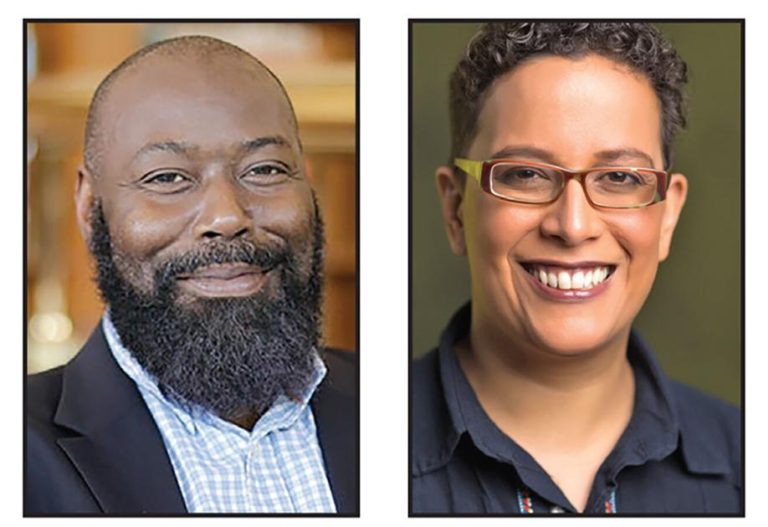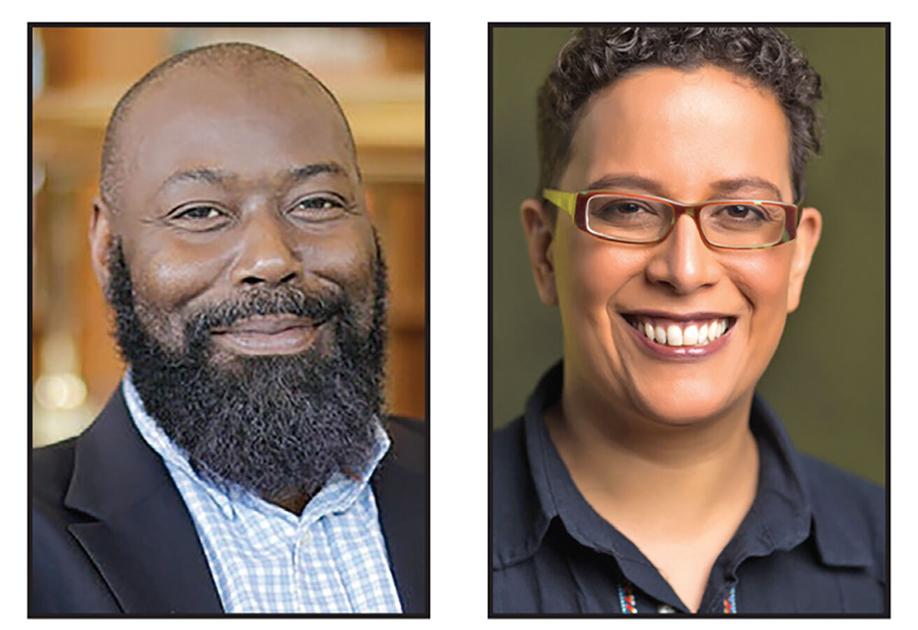

The Lambda Literary Awards presented the first-ever Randall Kenan Prize at its Lammys virtual ceremony Monday. It was the first award announced for the event. Kenan won a Lambda Literary Award in 1992 for his short story collection “Let the Dead Bury Their Dead,” and served on the faculty of Lambda’s Writers Retreat for Emerging LGBTQ Voices. He resided in Hillsborough and was an English Professor at UNC-Chapel Hill. Kenan died unexpectedly Aug. 28, 2020.
Many of his writings were set in his home state of North Carolina, and focused on what it means to be poor, black and gay in the South, giving form to a presence often overlooked or shunned.
“He made a great impact on many both as a writer, through his books, but also as a teacher and a mentor,” said Sue Landers, executive director with Lambda Literary. “His death was was surprising and the earth shook. I think in particular, black and gay and southern readers saw themselves in his work, and felt seen by his work.”
Lambda Literary was created 30 years ago to recognize LGBTQ writers and the role they play in influencing the world. “We have a vast network of writers and queer readers, so we announced in January this prize, along with three other prizes that we give out at the Lammys each year and response was very positive,” Landers said. “Because Randall was beloved and folks were really excited to see him honored in this way.”
The inaugural winner of the Randall Kenan Prize was Ana-Maurine Lara, a professor, novelist, poet, and black feminist scholar. Lara was a finalist for a Lammy in lesbian poetry in 2017.
Reggie Harris, one of the judges for the prize said, “Submissions for the Randall Kenan Prize for Black LGBTQ Fiction were wide ranging in plot, genre, and style. They exemplified the vibrant diversity of our literature and the gloriously queer imaginations of our writers. It was a pleasure to read all the submissions – making it quite a challenge to choose only one writer to receive the prize. Ana-Maurine Lara’s excerpt from her novel “Erzulie’s Skirt” introduces the reader to Miriam and Micaela, and the women’s time in captivity in Puerto Rico, after fleeing the Dominican Republic.
Lara immerses us in the story of their brutal and hallucinatory ordeal. Securely moving between the women’s detention and their memories, visions, and nightmares, the vivid writing causes the reader to feel the women’s confusion, desperation, and determination to survive. The prose is beautifully controlled, both disturbing and compelling, pulling the reader along, eager to discover the fate of Miriam and Micaela. Ana-Maurine Lara is a writer of true skill and creativity who deserves to be better known.
“Wow, what a tremendous honor. I was honestly very surprised because there are so many incredible Black LGBTQ writers right now,” said Lara. “And it really meant a lot to me that my peers and colleagues would consider me worthy of this award.
“For me, the legacy of Randall Keenan is his unapologetic beauty in his writing and the capacity to imagine worlds beyond what what we currently have. In some ways, even though I didn’t get to meet him in person when he was alive, I wish I had because I feel we would have had some conversations. The thing that our work has in common is that we walk between the boundaries of magical and mystical. And, you know, in that sense he’s such an ongoing and profound inspiration for me,” Lara said.
Sue Landers said the idea for the prize came about when three close friends of Kenan approached her about honoring him. “It is a tribute to Randall, and it will also introduce new generations of readers to his work. We’re thrilled to be able to offer such a substantial cash prize also to LGBTQ Black writers right now,” she added.
Landers also said recognition of the queer literary community is becoming more important as more queer stories are shared and seen on all forms of media. “I think this is particularly true in young people’s literature. We are seeing an explosion of queer protagonists in children’s middle grade and young adult literature, and this is incredibly important because, even though these books are increasingly being published, students in schools do not have a lot of access to positive LGBTQ representation and stories. And it’s incredibly important for young people to see themselves reflected in the books, and in the histories that are being shared and validated through school. So we’re very excited in particular about children’s and young people’s literature, and the huge growth in queer stories within those genres. But it is true across the board that we’re seeing increased LGBTQ narratives in books.”